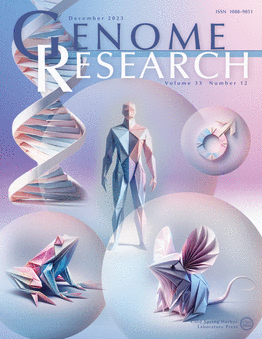用DeCEP从单细胞和空间转录组学数据中破译上下文特异性基因程序
IF 5.5
2区 生物学
Q1 BIOCHEMISTRY & MOLECULAR BIOLOGY
引用次数: 0
摘要
功能性基因程序在健康和疾病中发挥着广泛的作用,通过协调转录协同调节来控制细胞身份。理解这些复杂的基因程序对于揭示生物系统的复杂性至关重要;然而,破译它们仍然是一个重大挑战。单细胞RNA测序(scRNA-seq)和空间转录组学(ST)技术的最新进展使得在单细胞和空间分辨率上对基因程序进行全面表征成为可能。在这里,我们提出了DeCEP,这是一个计算框架,旨在利用scRNA-seq和ST数据表征上下文特异性基因程序。DeCEP利用功能基因列表和有向图来构建不同细胞或空间背景下的功能网络。然后,它识别与基于网络拓扑的特定基因程序相关的上下文依赖的中心基因,并将基因程序活动分配给单个细胞或空间位置。通过对模拟和真实生物数据集的评估,DeCEP证明了与现有方法相比的互补优势,它能够在特定背景下更精细地表征基因程序,特别是那些以明显的转录异质性为特征的基因程序。此外,我们通过对正常肝组织、阿尔茨海默病和癌症的案例研究,展示了DeCEP在阐明生物学见解方面的能力。本文章由计算机程序翻译,如有差异,请以英文原文为准。
Deciphering context-specific gene programs from single-cell and spatial transcriptomics data with DeCEP
Functional gene programs play a wide range of roles in health and disease by orchestrating transcriptional coregulation to govern cell identity. Understanding these intricate gene programs is essential for unraveling the complexities of biological systems; however, deciphering them remains a significant challenge. Recent advancements in single-cell RNA sequencing (scRNA-seq) and spatial transcriptomics (ST) technologies have empowered the comprehensive characterization of gene programs at both single-cell and spatial resolutions. Here, we present DeCEP, a computational framework designed to characterize context-specific gene programs using scRNA-seq and ST data. DeCEP leverages functional gene lists and directed graphs to construct functional networks underlying distinct cellular or spatial contexts. It then identifies context-dependent hub genes associated with specific gene programs based on network topology and assigns gene program activity to individual cells or spatial locations. Through evaluation on both simulated and real biological datasets, DeCEP demonstrates complementary strengths over existing methods by enabling more fine-grained characterization of gene programs within specific contexts, particularly those characterized by pronounced transcriptional heterogeneity. Furthermore, we showcase the ability of DeCEP in elucidating biological insights through case studies on normal liver tissue, Alzheimer' disease, and cancer.
求助全文
通过发布文献求助,成功后即可免费获取论文全文。
去求助
来源期刊

Genome research
生物-生化与分子生物学
CiteScore
12.40
自引率
1.40%
发文量
140
审稿时长
6 months
期刊介绍:
Launched in 1995, Genome Research is an international, continuously published, peer-reviewed journal that focuses on research that provides novel insights into the genome biology of all organisms, including advances in genomic medicine.
Among the topics considered by the journal are genome structure and function, comparative genomics, molecular evolution, genome-scale quantitative and population genetics, proteomics, epigenomics, and systems biology. The journal also features exciting gene discoveries and reports of cutting-edge computational biology and high-throughput methodologies.
New data in these areas are published as research papers, or methods and resource reports that provide novel information on technologies or tools that will be of interest to a broad readership. Complete data sets are presented electronically on the journal''s web site where appropriate. The journal also provides Reviews, Perspectives, and Insight/Outlook articles, which present commentary on the latest advances published both here and elsewhere, placing such progress in its broader biological context.
 求助内容:
求助内容: 应助结果提醒方式:
应助结果提醒方式:


